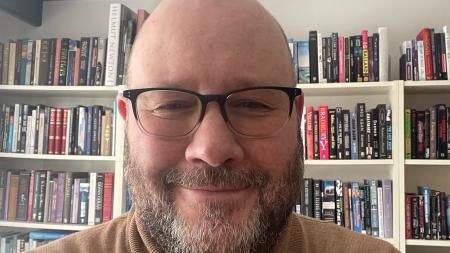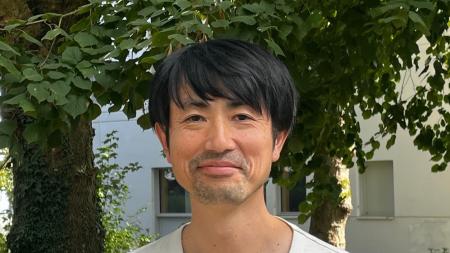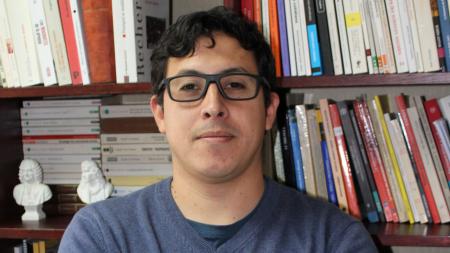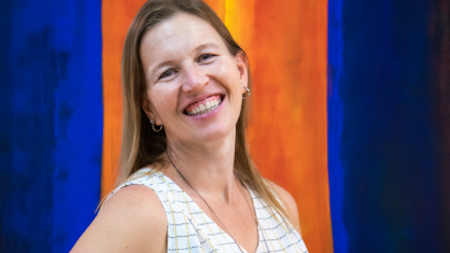Pictured from left to right: Anne-Laure Le Nadant, Jacob Dahl Rendtorff and Catherine Malecki.
Could you share how your collaboration with Catherine Malecki began?
Jacob Dahl Rendtorff (JDR): Our collaboration started when I came across Catherine's book on sustainability and corporate social responsibility (CSR), which was a very interesting read. I reached out to her to see if she would be interested in contributing to a book I was working on: “The Handbook of Business Legitimacy, Responsibility, Ethics, and Society." It has more than 90 contributors and it’s about the new conditions of business today, sustainability, social responsibility, how businesses cannot just focus on making money, but how they should also contribute to society. The notion of legitimacy, central to the discussions between Catherine and I, straddles the realms of politics, law, and social constructs, highlighting the multifaceted nature of a corporation's survival strategy.
Catherine Malecki (CM): Jacob's recognition of my work was an honor for me. His expertise and dedication are well-known in academic circles, so collaborating with him on this notion of legitimacy was really enriching. I would say he is one of the first academics to develop a broader view of the future of sustainable governance.
Professor Dahl Rendtorff, your specialization lies in the philosophy of management. Could you shed some light on this field and how it intersects with business ethics and sustainability issues?
JDR: The philosophy of management is a relatively nascent field, emerging only in the last two decades with the establishment of its first dedicated journal. It’s a burgeoning discipline that delves into the ethical dimensions of business practices with roots in business ethics and CSR. It emerged as a distinct field, buoyed by the growing recognition of ethical imperatives in business operations. With an increasing institutional recognition of the field of business ethics, particularly in the United States, there also arose a distinct need for deeper philosophical reflections on management practices and the underpinnings of managerial decision-making. The emergence of sustainability as a pressing global issue helped to spur this shift, although it's still developing in its own right. In Europe, for example, while previously contested, recent directives from the European Union on sustainability reporting and social responsibility have helped to contribute to its legal recognition. In France, there is now a growing recognition of "la philosophie de la gestion", while in Germany, discussions around "wirtschaftsphilosophie" are also gaining momentum.
Through my field’s lens, we can look more critically and more in-depth at some of the key questions revolving around businesses and sustainability. How can managers be more reflective? What is the green transition? Or, what does it mean to accomplish a green transition? Therefore, there's this need for philosophy in the disciplines of management. There have been some famous management theorists who have been trying to take a philosophical approach to business and economics. It must be said that philosophy scholars are often reluctant to study corporations or management. Originally, the word “management” referred to doing something with your hands, which came from the Latin word “manus”, meaning “hand”. While philosophy means “love of wisdom”. To many, these two fields are not a great match for each other. But that's beginning to change.
This afternoon, you’ll be holding a seminar on stakeholder theory. Could you elaborate on its significance and on its capacity to influence decision-making processes and legal frameworks?
JDR: It's very interesting because stakeholder theory has emerged very strongly within the management sciences, where there actually was a philosopher in the United States who proposed this as a theory of business. The idea is to look at the impact that your business has on all your stakeholders, not just your shareholders. The European Union started to work a lot on the concept of stakeholders, but more from a political perspective. In Scandinavia, because there has been consensus-oriented politics for quite some time, there’s a strong tradition of speaking to stakeholders. For a Scandinavian, this is how we’ve always done business.
What's interesting is that the concept has now started to move into politics and into law. And I think that there is an opportunity here to weave the theory of stakeholders into our legal system and to fill some gaping holes. For example, the European Union Sustainability Reporting Directive talks about stakeholders, but what it really is, is not that clear. Stakeholder engagement, ethical decision-making, and alignment with broader societal goals are imperative in fostering sustainable business practices. Similarly, policymakers must refine legal frameworks to accommodate stakeholder interests and foster inclusive decision-making processes. So, what this means for law is the next interesting question.
CM: I agree, the concept of stakeholders is undergoing a rapid evolution, especially within the legal domain and Jacob's approach is very interesting for law. As legal frameworks adapt to accommodate stakeholder interests, we see a need for precise definitions and frameworks arise. Even the concept of stakeholder is not yet completely defined. It's more of a moving concept. The implementation of directives such as the Corporate Sustainability Reporting Directive (CSRD) underscores the imperative of incorporating stakeholder perspectives into legal frameworks. Last December, France became the first EU member state to implement it. This directive has done a lot to bring the concept of stakeholders out of the shadows. Twenty years ago, people were mostly interested by markets and shareholders.
The OECD principles have given a new definition of a stakeholder. So we now have two definitions: a broad one and one that is more specific. One that is useful for business, philosophy, management… and another which represents a very narrow legal approach. This is the result of the hard work of several think tanks and NGOs (for example those involved with environmental causes). So it's very interesting and, in my opinion, we are now at a turning point. Things are starting to move very fast. Which is very welcome considering the climate emergency we are facing.
And I imagine that developing a clearer legal framework would facilitate the involvement of a variety of stakeholders. That it would help them be invited more frequently to the negotiating table and have their voice heard?
JDR: Yes, it certainly would. As we stand though, the EU's directive is just about reporting. They can make suggestions but they cannot impose any sanctions. They make a lot of suggestions, but they need stakeholders to cooperate.
Which can be quite complicated when you have "sleeping stakeholders" such as shareholders that can stay dormant for a while and just collect their dividends. But at a certain juncture, they may decide to express themselves. All of a sudden, they can have a considerable influence on the proceedings because of the power that they hold over the corporations. It is equally difficult to handle some groups that are essentially viewed as non-stakeholders until they get involved and become meaningful stakeholders that you can no longer ignore.
CM: And one potential problem, as Jacob notes, is how the different stakeholders might act and interact. Which tools or avenues do they resort to in order to make themselves heard? In order to weigh in on the decisions that they care about. And the key question, in my opinion, is: Do they act for the benefit of the whole company, for the whole society, or are they ultimately prone to being selfish? Could they be acting for the benefit of the whole company, including that of shareholders and the workers? Or should a company, the whole company, be working for the benefit of all people? This is one of the questions at the root of CSR.
Professor Malecki, how do you integrate these interdisciplinary perspectives into your teaching at Rennes 2?
CM: At Rennes 2, I've been fortunate to introduce courses on CSR and sustainability, fostering interdisciplinary dialogue among students. I endeavor to instill in them a broader understanding of ethics and management principles. Through collaborations and seminars, we aim to explore innovative approaches to address contemporary challenges.
Do you have any other plans for combined teaching or research projects currently in development?
CM: Not yet, but I would like to start a series of seminars. I would like for this afternoon’s seminar to become the first of a future series of seminars, with Jacob, and probably other academics from Denmark, France, and also Ireland. My colleague Anne-Laure Le Nadant and I are delighted to be working together to organize these seminars.
I would like to create an overarching academic group. I already have French colleagues who have been working on this topic for many years, but we need a new comparative approach in my opinion, in particular with the Asian approach to these issues. It would be very useful to focus on specific topics that are very important to some stakeholders. For example, a topic linked to environmental law, such as water, biodiversity, forests, mining. For each topic, we could invite one of these stakeholders such as an NGO in order to enrich our analysis. This interdisciplinary approach could give us new and worthy perspectives on these topics and on our field of study in general.
Jacob Dahl Rendtorff will be on Rennes 2’s campus for the next 3 weeks, with seminars planned on the 11th and 16th of April in coordination with the LiRIS research center:
- Thursday, April 11th, from 4 to 6pm. Amphi B6.
- Thursday April 16th, from 4pm - 6pm. (location TBA)





